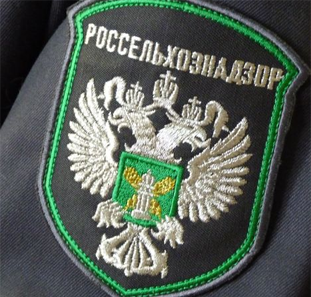Power Machines Wins Claim Against Vietnam in Singapore Arbitration

Alexey Mordashov's Power Machines, which has been under US sanctions since 2018 , has achieved a positive decision on a lawsuit against the Vietnamese state corporation Vietnam Oil and Gas Group (PetroVietnam) at the Singapore International Arbitration Centre (SIAC). A source familiar with the arbitration process told RBK about this, and Power Machines confirmed it. A federal official also knows about Power Machines' victory in international arbitration.
This is the first public victory for a sanctioned Russian company in international arbitration since at least 2022, when the West imposed tough sanctions on RUSSIA after the start of a special military operation in Ukraine .
The Russian company initiated arbitration proceedings in Singapore in 2019, demanding compensation for funds spent on the joint project. In late 2013, a joint venture between Power Machines and PetroVietnam Technical Services Corporation (a subsidiary of PetroVietnam) received a contract to build the Long Phu-1 thermal power plant in Vietnam. The contract was valued at $1.2 billion. After Power Machines fell under US sanctions, the project was suspended due to the blocking of mutual settlements. They tried to resolve the problem at the level of the Russian-Vietnamese intergovernmental commission. As the Vietnamese newspaper Tuoi Tre wrote in 2022, by the time the project was suspended, 77.6% of the project was completed.
In early 2019, Power Machines suspended its participation in the contract, citing force majeure. The Vietnamese side did not agree to recognize the American sanctions as a basis for force majeure. PetroVietnam Technical Services Corporation explained that the blocking of the project due to American sanctions had caused damage to both parties. Even if the partners had agreed on compensation for Power Machines, it would have been impossible to pay it due to the sanctions, Vietnamese media wrote.
The claim of Power Machines was satisfied for more than $500 million, a source familiar with the proceedings told RBK. These are the actual costs of construction of the project, including unpaid bills, the cost of equipment and work that were ordered and completed by the date of termination of the contract. The Vietnamese side filed a counterclaim with financial demands for about $3.5 billion - for various losses, including a demand to compensate for the cost of construction of the station along with interest for four years on the entire amount of the claims, but the arbitration COURT rejected it, RBK's source knows.
In response to an RBC request, a representative of Power Machines reported that "SIAC ruled in favor of Power Machines in November 2023." Power Machines is satisfied with the court's decision, but the terms of the decision are confidential and cannot be disclosed to either party at this stage, the company clarified. "Power Machines' actions are determined by the specifics of enforcing international commercial arbitration decisions and the SIAC regulations."
RBC Pro Development Program Master 52 skills in a year The development program is a convenient tool for continuous learning of new skills for a successful career How to make a plan so as not to give up halfway: 6 steps Why challenges paralyze some managers and motivate others Tired of living according to someone else's scenario? How to rewrite these settings yourself Think like Jeff Bezos . What algorithms do successful businessmen use Make a breakthrough in your career: start listening to your body There is no point in making a super product for months: 6 rules of the founder of VkusVill A victim of perfectionism: why you should not try to do everything perfectly Why you are so afraid to delegate. The Economist explains Does not give advice and is indifferent to prestige: 3 types of magnet managers If you are tired, downshifting is not a solution. How to save your career The Norbit case: how we give feedback to colleagues using cubes How to cope with severe anxiety in 2 minutesDmitry Dyakin, a partner at the law firm Rybalkin, Gortsunyan, Dyakin and Partners, who represented Power Machines in the dispute, declined to comment.
RBC sent a request to the Ministry of Foreign Affairs of Vietnam and PetroVietnam.
What's next?
Managing partner of the law firm Lidings Andrey Zelenin confirms that he is not aware of any public victories of Russian companies in international arbitration courts in similar circumstances, when the plaintiff is under sanctions. Due to the confidentiality of the decision and the specifics of the dispute itself, the case can hardly be called a legal precedent, the expert stipulates, but "the achieved result will at least become an example and a guide for other Russian businesses seeking justice in foreign courts."
Only in rare cases, he notes, does a defendant voluntarily agree to enforce an arbitration award, so in most cases the applicant begins to apply for enforcement of the arbitration award in those jurisdictions where the debtor's property may be located. "In this regard, Power Machines is, one might say, lucky, because PetroVietnam has a number of joint ventures in Russia," says Zelenin. However, given the US sanctions imposed on Power Machines (and the fact that EU sanctions are in effect against Mordashov, in whose interests Severgroup LLC, the owner of 100% of Power Machines, manages investments), the company will not be able to freely try to seize PetroVietnam's assets in various countries around the world, especially those unfriendly to Russia.
Under the SIAC rules (.pdf), arbitration awards are confidential by default unless both parties agree in writing to their disclosure. But such awards most often become known when the winning party in an arbitration petitions national courts to enforce the award, Zelenin notes.
Generally, international arbitration awards (the SIAC verdict is one of these) can be recognized and enforced under a UN convention known as the New York Convention in countries that are parties to that convention. At the same time, the losing party can apply to the national court of the country where the arbitration is located to set aside the award on limited grounds.
In early February 2024 , Power Machines filed a claim with the Moscow Arbitration Court against PetroVietnam and its Moscow representative office. The content of this claim is unknown. An application for recognition and enforcement of a foreign arbitration award may be filed at the location of the debtor's property, according to the Arbitration Procedure Code of Russia.
Foreign sanctions tend to make it difficult to enforce foreign (international) arbitration awards. Payments from or to a sanctioned entity may not be possible without obtaining the appropriate licences from regulators. “Settlement or enforcement of an arbitration award, whether in favour of or against a sanctioned party, is likely to require an exemption or licence under the applicable sanctions regime to enable the sanctioned party to make or receive payment,” according to Linklaters.
In addition, the losing party may argue that the award cannot be enforced because it would be contrary to the “public policy” of the country where the award is being enforced due to the sanctions. However, national courts often do not allow invoking public policy when it comes to unilateral sanctions (as opposed to, for example, international UN sanctions). In 2018, an international arbitration tribunal in Paris ruled in favor of the Iranian company NGSC in a dispute with the French company Sofregaz over a construction contract in Iran that was terminated due to various sanctions against the country. In 2019, Sofregaz asked the Paris Court of Appeal to overturn the arbitration award, arguing that the project could not be completed due to the sanctions. However, in 2020, the court rejected the request, ruling that unilateral US sanctions could not be grounds for considering France’s international public policy to be violated. At the same time, the court considered that UN resolutions or EU regulations imposing sanctions on Iran would be part of France's public order, since they are aimed at promoting international security and peace.
Read together with it:
- Bloomberg узнал о плане G7 значительно ужесточить санкции против РоссииНовый пакет санкций будет включать меры, в частности, против энергетики, финансов и военной промышленности, а также крупнейших нефтяных компаний России. Разработку пакета G7 планирует завершить в октябре, выяснил BLOOMBERG Страны «Большой семерки» (G7) приближаются к соглашению о значительном ужесточении санкций в отношении России, сообщает агентство Bloomberg со ссылкой на проект заявления. «Мы с...




























































